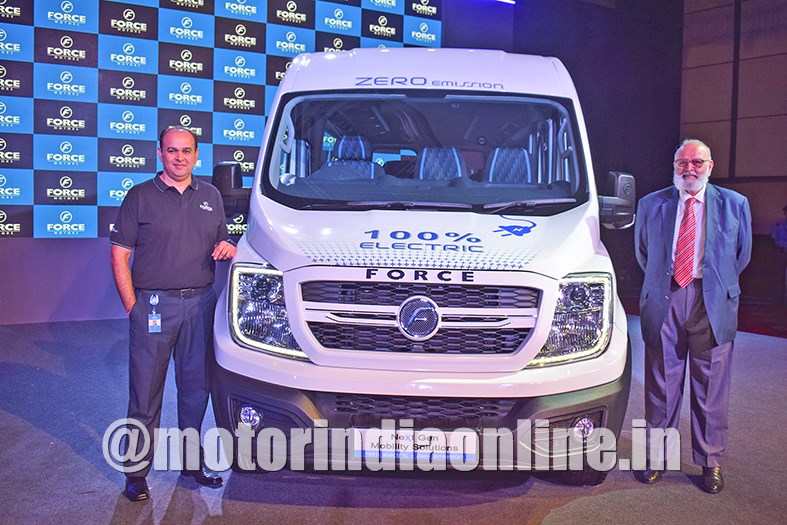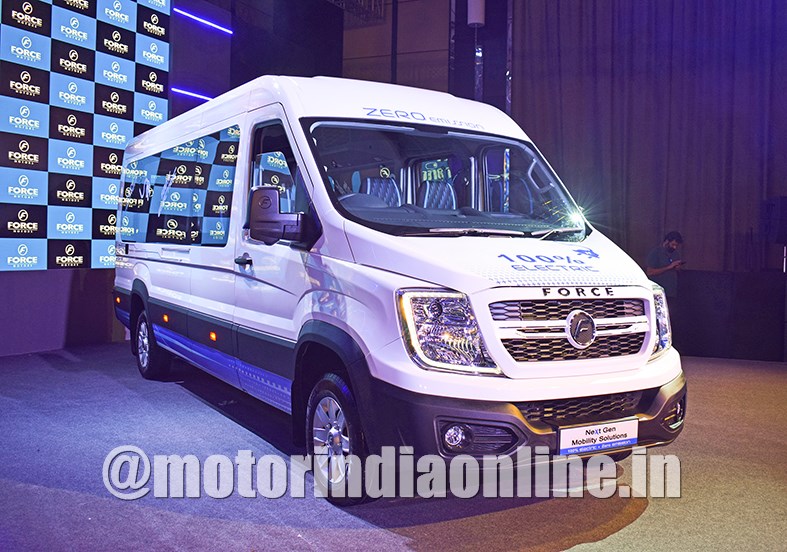The T1N monocoque panel van platform has been designed and developed for both internal combustion engines as well as 100% electric drive, reports Rajesh Rajgor

Force Motors recently showcased its latest offering in the passenger vehicle segment, which is also underpinned by the company’s brand new platform. The new vehicle is codenamed the T1N and the monocoque panel van platform has been designed and developed for both internal combustion engines as well as 100% electric drive. This new platform is undergoing final validation and homologation processes following which it will be showcased at the upcoming Auto Expo 2020 before its launch in December 2020. The company is the country’s largest van maker with over 60% market share in the segment and the new platform will raise the bar in terms of passenger comfort, convenience and safety to match international standards.
The T1N is presented as the first vehicle in this category in India, offering crash and rollover compliance with airbags for driver and co-driver even though the current Indian legislation does not mandate them. In addition, T1N comes with large ventilated disk brakes on all four wheels with ABS, EBD, EDTC and ESP, thus offering unmatched safety for its passengers.
Speaking about this new development, Dr. Abhay Firodia, Chairman, Force Motors Ltd., said: “The two new vehicles are for the next generation and made by the young generation. You cannot deny to the market what it needs and aspire.”
Clearly, the T1N has been developed with global aspirations. It is design-protected for plying in select markets of the Middle East, Africa, ASEAN and South America where the T1N is expected to be an excellent value proposition as against premium products from Europe, the Far East and USA.
Speaking on the occasion of the launch, Prasan Firodia, Managing Director, Force Motors, said: “As segment leaders we considered it our duty to offer our customers not just what they need but what they aspire for, and hence we set about developing this truly world-class next generation platform packaging leading-edge technologies in every aspect.”
The project required four years of preparation and investment of approximately Rs. 1,000 crores. Also, a dedicated and exclusive team of about 100 young specialist engineers and senior managers – experts in their respective domains – was selected for this project by Force Motors. After conducting benchmarking studies with domestic and international offerings, the team developed and engineered the concept of this new platform. The special T1N development team then consulted leading technology specialists and domain experts across the globe in Italy, Spain, UK, Germany, Japan and USA to improve, refine and validate the platform to match international performance expectations.
The T1N platform has been designed with a two-box construction keeping the engine fully outside, thereby ensuring least NVH in passenger compartment. For the first time in this segment, independent front suspension with transverse parabolic springs has been offered, giving it the best-in-class ride quality. T1N is powered by a new and more powerful BS VI-compliant, Common Rail Diesel engine, offering peak torque of 350 Nm. The platform will also offer BS VI CNG variant as also a class-leading full electric version. Its international styling and body design is in a unique niche by itself and in the same league as leading international offerings.
The looks are further enhanced by ‘first in segment’ signature day running LEDs, projector lamps and tail lamps with light guide technology, all making it a head-turner whichever way one looks at it. Given that the vehicle is undergoing its final validation and homologation process, a new state-of-the-art facility comprising a body shop with robotic and laser welding facilities is being set up at the company’s Pithampur works. It goes without a doubt that with these premium offerings, Force Motors has made it evident that it is ready for the future, irrespective of the driveline, and can deliver vehicles for IC engines, electric, fuel cell, etc., that the industry would move on to.
